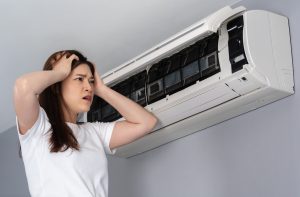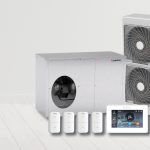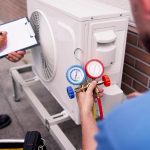Managing heat load in the Plastics Industry with Evaporative Cooling
- Australia, Europe
- Commercial
- Community, Sustainability, Cooling
In the plastics industry, managing heat is crucial for ensuring efficient processes, high-quality products, and a safe working environment. Heat-related challenges such as thermal degradation, inconsistent cooling, heat build-up in processing equipment, poor heat transfer, and thermal expansion are common. One effective method for addressing these heat issues is evaporative cooling.
Heat Issues in the Plastics Industry
- Thermal Degradation: Excessive heat can cause plastics to degrade, leading to discoloration, loss of mechanical properties, and release of hazardous by-products.
- Inconsistent Cooling: Uneven cooling during processes like injection molding can result in warping, internal stresses, and dimensional inaccuracies.
- Heat Build-Up in Processing Equipment: Prolonged operation can lead to overheating, causing equipment malfunctions and safety hazards.
- Poor Heat Transfer: Inefficient heat transfer during heating and cooling stages leads to longer cycle times, inconsistent product quality, and higher energy consumption.
- Thermal Expansion and Contraction: Improper handling of expansion and contraction can result in defects such as warping, cracking, or joint failures.
- Material-Specific Heat Sensitivity: Different plastics have varying sensitivities to heat, and incorrect temperatures can compromise structural integrity.
- Heat-Induced Chemical Reactions: High temperatures can trigger undesirable chemical reactions within the plastic or with additives, affecting quality and safety.
- Energy Consumption: Heating and cooling processes are energy-intensive, leading to increased operational costs and environmental impact.
- Environmental Impact: Heat management often involves the use of cooling agents and energy, contributing to environmental pollution.
- Safety Hazards: High temperatures in processing equipment pose risks of burns and other heat-related injuries to workers.
Benefits of Evaporative Cooling
Evaporative cooling is a natural process where water absorbs heat to evaporate, lowering the temperature of the surrounding environment. This method is energy-efficient and environmentally friendly compared to traditional air conditioning systems. Here are the key benefits:
- Enhanced Cooling Efficiency: Evaporative coolers can significantly reduce ambient temperatures, providing effective heat dissipation, especially in high temperatures and low humidity environments.
- Improved Working Conditions: Maintaining a cooler workplace boosts worker morale and efficiency, reducing the risk of heat-related illnesses.
- Energy and Cost Savings: Evaporative cooling consumes less energy than conventional air conditioning, leading to significant cost savings on electricity bills.
- Environmental Benefits: With lower energy consumption and avoidance of harmful refrigerants, evaporative cooling is a greener and more sustainable option.
- Consistent Temperature Control: Stabilizing temperatures during manufacturing ensures uniform cooling of plastic parts, reducing the risk of defects.
- Scalability and Flexibility: Evaporative cooling systems can be scaled for different facility sizes and integrated with existing ventilation systems.
- Low Maintenance Requirements: With fewer mechanical components, evaporative coolers have lower maintenance needs and costs.
- Fresh Air: Evaporative coolers supply 100% fresh air at a lower cost than traditional cooling systems, ensuring a high number of air changes that “clean” the internal air of all pollutants.
Applications in the Plastics Industry
- Injection Molding: Maintaining optimal temperatures around injection molding machines prevents overheating and ensures consistent product quality.
- Extrusion Processes: Controlling ambient temperature during extrusion is crucial for achieving desired material properties and product dimensions.
- Warehouse Cooling: Large storage areas for plastic materials benefit from evaporative cooling to prevent heat-related damage.
- Thermal Comfort & Indoor Air Quality: Internal personnel benefit from evaporative cooling due to the optimal internal temperature and humidity, as well as the high number of air changes (100% Fresh air)
Evaporative cooling offers a practical and efficient solution for addressing heat-related challenges in the plastics industry. By providing enhanced cooling efficiency, improving working conditions, Indoor Air Quality, and offering significant energy and cost savings, evaporative cooling stands out as a valuable addition to any plastic manufacturing facility’s heat management strategy. Embracing this technology not only boosts productivity and product quality but also supports a more sustainable and environmentally friendly operation.
Implementing evaporative cooling in plastic manufacturing process can transform the heat management approach, leading to better products, happier employees, and a healthier bottom line.
There is a specific evaporative technology, M-Cycle Indirect Evaporative Cooling and Supercool technology, which can supply air at a temperature below the outside air wet bulb temperature and also maintain a perfect control over both internal temperature and humidity.



